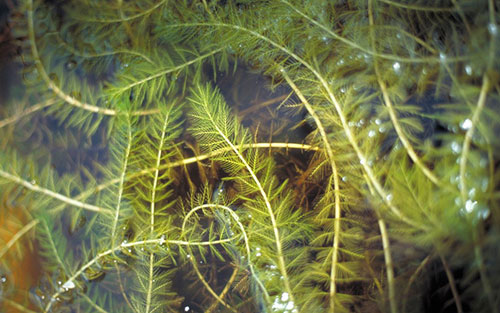
Despite its beauty, Japanese knotweed is one of the 100 worst invasive species on the planet.
Invasive alien species
La Mauricie National Park
Not all alien species are a threat. However, some can cause significant ecological, economic or environmental damage. They are referred to as “invasive.”
Purple loosestrife, Asian lady beetle, butternut canker, beech bark disease and Japanese knotweed are among the main invasive alien species observed in La Mauricie National Park. Where possible, management activities are carried out to control their spread. Getting rid of certain species, for instance the Japanese knotweed, is particularly difficult and can take several years.
Some other invasive alien species, although not currently found in the park, are on the radar of our teams:
- Eurasian watermilfoil
- Common water reed (ditch reed)
- Emerald ash borer
- Spiny water flea
- Rainbow trout
- Zebra mussel
What you can do to help protect La Mauricie National Park from invasive alien species
- Clean your equipment, particularly your boat. Inspect and clean your gear and footwear to remove all seeds, mud and plant matter before and after visiting the park.
- Stay on the trail to avoid spreading seeds and trampling on native plants.
- Do not bring wood with you that is from outside the park. Only use the firewood sold on-site.
Preventing Eurasian watermilfoil invasion

The Eurasian watermilfoil has not yet been detected in the park’s lakes, but there is a real risk of colonization. This particularly invasive aquatic plant is found in the Mauricie region and elsewhere in Quebec.
As a precautionary measure, it is prohibited
- to use a motorboat (gas or electric).
- to use a trailer to launch your boat.
- for park employees, researchers and contractors to use boats other than those provided by Parks Canada.
Parks Canada is committed to prevent the introduction of Eurasian watermilfoil in La Mauricie National Park’s water bodies by raising awareness among its employees and visitors. In addition, our teams conduct aquatic plants inventories in order to quickly detect the introduction of new species.
Related links
- Date modified :